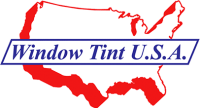Making your commercial property energy efficient and LEED Certified can be as easy as installing office window tint on your building. According to the USA building codes, South Florida is classed in Climate Zone 1, the zone experiencing the hottest temperatures in America. The earlier you invest in quality window film, the quicker you can receive payback and start saving big on energy costs, especially when it comes to keeping the temperature cool during the day. When considering the worth of such an investment, we have some statistics to better inform your opinion.
The ROI on Office Window Tint
Installing window film earlier rather than later can have a significant impact on your bottom line. A reluctance to make the initial investment will end up losing money that could have been put to better use. The return on investment (ROI) for window film averages around 3 years but can even be as early as 1 year. Considering that the lifespan of window film can head towards 20 years, you can end up saving over a decade and a half of money that would have been wasted on cooling your offices and maintaining core temperatures.
Window Tint USA uses 3M window film, and in a case study by 3M on a Climate Zone 1 area, the ROI was 2 years, with $270, 000 annual energy savings on a condo building in Hawaii. Taking the relatively early ROI into account shows that making time to protect your commercial property sooner will be better for your saving as well as the added benefit of reducing your carbon footprint years before it is too late.
The Benefits of a Good Window Film for Your Company
-
Heat Reduction
There is a big reason why installing window film is so profitable to your company. Our films reduce 99% of UV rays, and a whopping 78% on heat penetration. In the heat of Florida, every second your building deflects the sun’s rays you are saving your HVAC and your company on fuel and energy.
-
Insulation
Window films work to even out the heat that enters through the glass and insulates rooms by keeping the heat out. With less temperature fluctuations your cooling systems will be able to work optimally and will also enjoy an increased lifespan.
-
Protection
Tints are made to reinforce the glass and protect them from adverse weather, impacts and blasts. If glass is broken by high impact force or serious weather conditions, it will not shatter and reduces glass-related injuries.
-
Safety and Privacy
Depending on the type of tint installed, your business will have additional privacy by preventing people from seeing into certain areas of the office. The added strength and privacy window film provides also secures your assets from break-in and theft.
-
Increases the Lifespan of You and Your Furnishings
The reduction of UV rays and heat will create a healthier working environment, as well as save all your furnishings from aging or fading, saving you even more money that would go to replacing furniture every few years.
What Does Window Film Cost?
Window films generally have a 10-15 year warranty, with a lifespan of around 20 years. Labor and material costs will be covered for the duration of the warranty, saving you hassle and extra expenditure. Window film is priced per square foot and varies in price depending on the type of tint chosen for a job. Tints come in varying strengths, durability’s and colors, all of which can affect the price. The price per square foot is multiplied by the area, as well as adding labor and material costs.
In terms of time spent, each job will look at the area of glass that needs coverage and the ease of access to the glass surfaces. On average, 300-400 square feet of window tint can be installed per day per installer. Tinting is generally installed on the interiors unless the color or sheen of the outside glass needs to be altered, and working on the exterior can add to time spent on the job. Other time factors include when workers are allowed to work without causing disruption to daily office work and the installation of window film in larger areas also goes faster than covering multiple smaller areas.
When assessing ways to make your property more efficient and profitable, assess how much of your costs are going towards your property’s daily running and energy costs. If you find there is space for improvement, consider making changes to the glass skin of your company which will save you money in the long run. It’s never too early to start saving.

